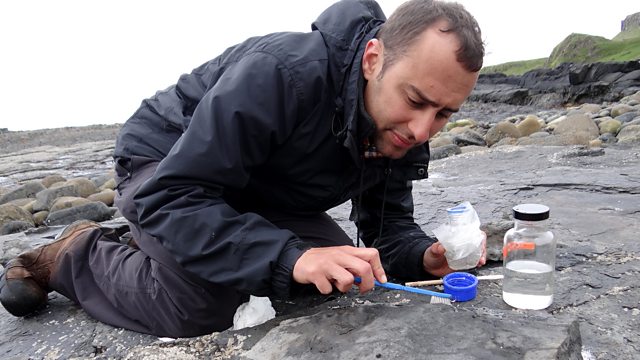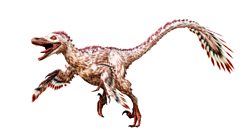Steve Brusatte on the fall of dinosaurs and the rise of mammals
How did mammals come to dominate our planet? Prof Steve Brusatte tells Jim Al-Khalili about his life and work studying dinosaurs, mammals and ancient reptiles.
Steve Brusatte analyses the pace of evolutionary change and tries to answer big questions. Why did the dinosaurs die out and the mammals survive? How did dinosaurs evolve into birds? If you met a Velociraptor today you’d probably mistake it for a large flightless bird, says Steve. His intense interest in T. rex, Triceratops and all the other dinosaur species developed when he was a teenager and continues to this day. More recently, however, he’s focussed on the long history of mammals.
For hundreds of millions of years, our mammalian ancestors remained small. Most were mouse-sized. None were bigger than a badger. Steve studies how, when an asteroid collided with earth 66 million years ago, the mammals got lucky. All the big dinosaurs were wiped out and only the small ones with wings survived. (Birds are dinosaurs, by the way). Within half a million years, mammals of all shapes and sizes had taken over on planet earth. Sabre-toothed flesh eaters, cow-sized plant guzzlers and a host of other warm blooded placental animals evolved alongside the badger sized burrowers.
Steve talks to Jim Al-Khalili about his life and work, including the recent discovery of an incredibly well-preserved Pterosaur on the Isle of Skye, a place he likes to call Scotland’s Jurassic Park.
Producer: Anna Buckley
Last on
Clip
-
![]()
Dinosaurs becoming birds...
Duration: 02:33
Broadcasts
- Tue 15 Mar 2022 09:00Βι¶ΉΤΌΕΔ Radio 4
- Tue 15 Mar 2022 21:30Βι¶ΉΤΌΕΔ Radio 4
Sleep – the mystery state
Is your mind a machine?
Daniel Dennett thinks so. Here is what we learned from his Life Scientific.
Podcast
-
![]()
The Life Scientific
Professor Jim Al-Khalili talks to leading scientists about their life and work.




